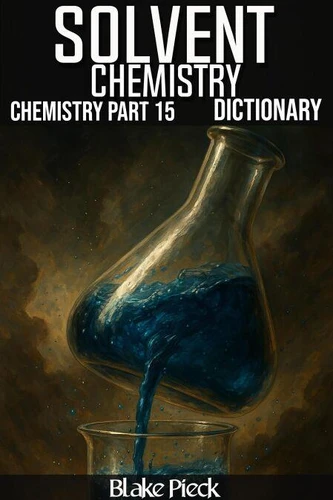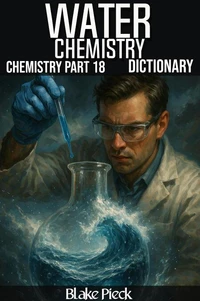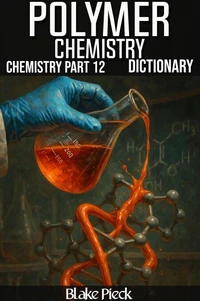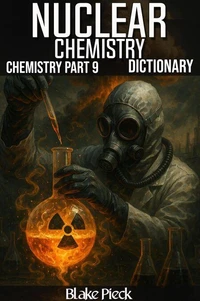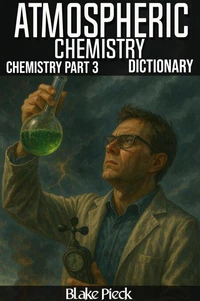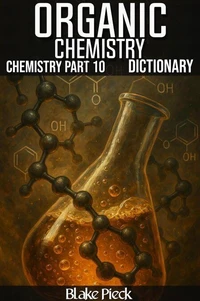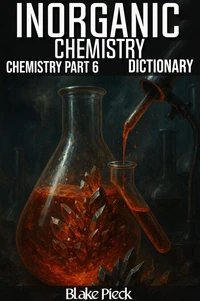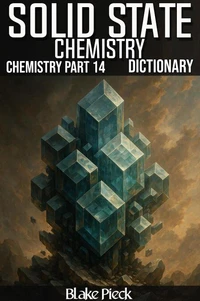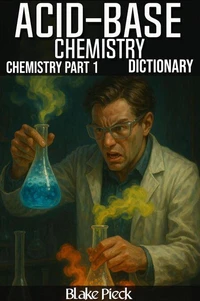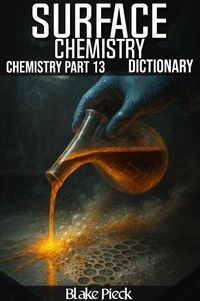Solvent Chemistry - Chemistry Part 15 Dictionary. Grow Your Vocabulary
Par :Formats :
Disponible dans votre compte client Decitre ou Furet du Nord dès validation de votre commande. Le format ePub est :
- Compatible avec une lecture sur My Vivlio (smartphone, tablette, ordinateur)
- Compatible avec une lecture sur liseuses Vivlio
- Pour les liseuses autres que Vivlio, vous devez utiliser le logiciel Adobe Digital Edition. Non compatible avec la lecture sur les liseuses Kindle, Remarkable et Sony
 , qui est-ce ?
, qui est-ce ?Notre partenaire de plateforme de lecture numérique où vous retrouverez l'ensemble de vos ebooks gratuitement
Pour en savoir plus sur nos ebooks, consultez notre aide en ligne ici
- FormatePub
- ISBN8231624461
- EAN9798231624461
- Date de parution01/09/2025
- Protection num.pas de protection
- Infos supplémentairesepub
- ÉditeurWalzone Press
Résumé
Solvent chemistry studies the liquids that dissolve, transport, and influence chemical reactions. It explores how polarity, hydrogen bonding, and dielectric properties determine solubility and reactivity. From water as the universal solvent to advanced ionic liquids and supercritical fluids, this field shows how solvents shape the outcome of countless laboratory and industrial processes. In the broader discipline of chemistry, solvents provide the medium in which reactions occur and measurements are made.
Their properties connect directly with physical chemistry, environmental science, and materials development. Understanding solvent effects allows chemists to optimize reactions, control selectivity, and design greener alternatives that reduce environmental impact. This dictionary compiles the specialized terminology of solvent chemistry into accessible entries. It includes definitions of solvation, partitioning, solvent parameters, extraction methods, and classifications of organic, inorganic, and mixed solvents.
Each entry offers depth and explanation, written to guide students, support educators, and provide professionals with a dependable reference for study and application. Learning through a dictionary reinforces the precise language needed to discuss solvent systems and their effects. By connecting definitions across related topics, readers build a clearer picture of how solvents influence both theory and practice.
With solvents central to research, manufacturing, and environmental stewardship, mastery of their vocabulary supports stronger education, innovation, and professional development.
Their properties connect directly with physical chemistry, environmental science, and materials development. Understanding solvent effects allows chemists to optimize reactions, control selectivity, and design greener alternatives that reduce environmental impact. This dictionary compiles the specialized terminology of solvent chemistry into accessible entries. It includes definitions of solvation, partitioning, solvent parameters, extraction methods, and classifications of organic, inorganic, and mixed solvents.
Each entry offers depth and explanation, written to guide students, support educators, and provide professionals with a dependable reference for study and application. Learning through a dictionary reinforces the precise language needed to discuss solvent systems and their effects. By connecting definitions across related topics, readers build a clearer picture of how solvents influence both theory and practice.
With solvents central to research, manufacturing, and environmental stewardship, mastery of their vocabulary supports stronger education, innovation, and professional development.
Solvent chemistry studies the liquids that dissolve, transport, and influence chemical reactions. It explores how polarity, hydrogen bonding, and dielectric properties determine solubility and reactivity. From water as the universal solvent to advanced ionic liquids and supercritical fluids, this field shows how solvents shape the outcome of countless laboratory and industrial processes. In the broader discipline of chemistry, solvents provide the medium in which reactions occur and measurements are made.
Their properties connect directly with physical chemistry, environmental science, and materials development. Understanding solvent effects allows chemists to optimize reactions, control selectivity, and design greener alternatives that reduce environmental impact. This dictionary compiles the specialized terminology of solvent chemistry into accessible entries. It includes definitions of solvation, partitioning, solvent parameters, extraction methods, and classifications of organic, inorganic, and mixed solvents.
Each entry offers depth and explanation, written to guide students, support educators, and provide professionals with a dependable reference for study and application. Learning through a dictionary reinforces the precise language needed to discuss solvent systems and their effects. By connecting definitions across related topics, readers build a clearer picture of how solvents influence both theory and practice.
With solvents central to research, manufacturing, and environmental stewardship, mastery of their vocabulary supports stronger education, innovation, and professional development.
Their properties connect directly with physical chemistry, environmental science, and materials development. Understanding solvent effects allows chemists to optimize reactions, control selectivity, and design greener alternatives that reduce environmental impact. This dictionary compiles the specialized terminology of solvent chemistry into accessible entries. It includes definitions of solvation, partitioning, solvent parameters, extraction methods, and classifications of organic, inorganic, and mixed solvents.
Each entry offers depth and explanation, written to guide students, support educators, and provide professionals with a dependable reference for study and application. Learning through a dictionary reinforces the precise language needed to discuss solvent systems and their effects. By connecting definitions across related topics, readers build a clearer picture of how solvents influence both theory and practice.
With solvents central to research, manufacturing, and environmental stewardship, mastery of their vocabulary supports stronger education, innovation, and professional development.

